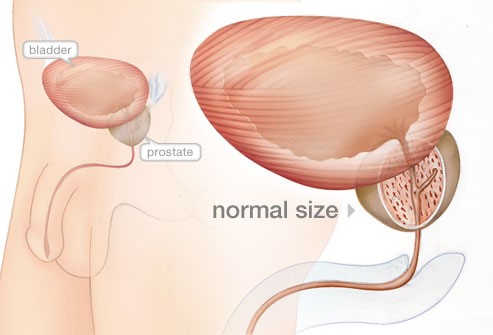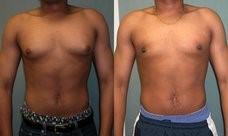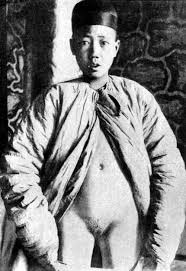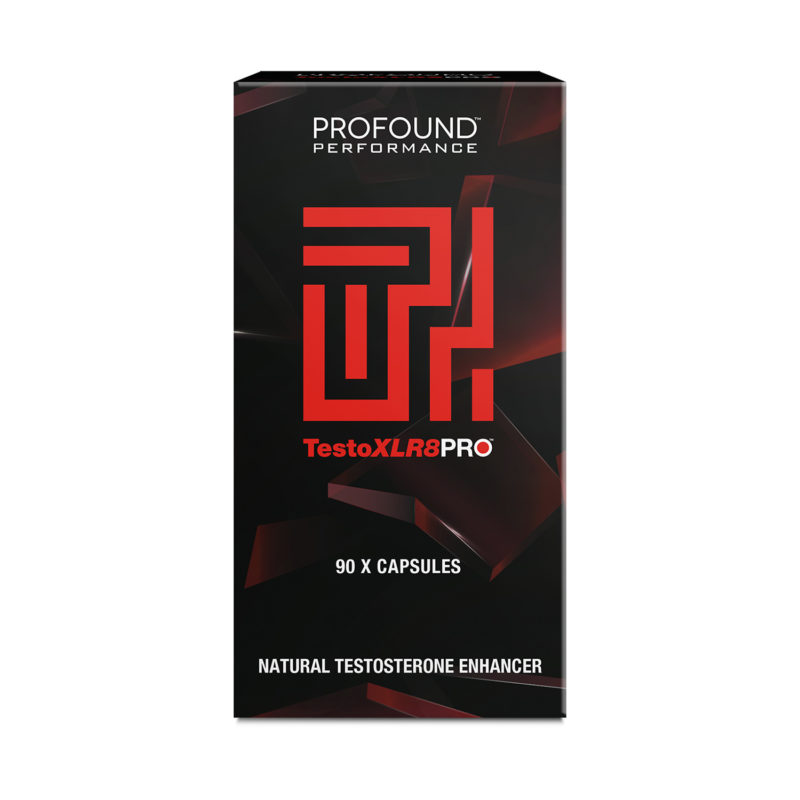Energize yourself with testosterone
Gentlemen, maybe you have already scored ‘normal’ on your testosterone tests, and yet you still don’t feel the energy you had twenty years ago. Ask your doctor to do a little more digging and studying about the latest findings in antiaging medicine- or find another doctor! Here is my story:
Fifty-two-year-old Isamu-san walked into my office with his lovely wife Eriko. We exchanged bows and Isamu-san said he had a problem that I had heard a lot lately: he couldn’t build any muscle or strength despite heavy exercise every day after work. His wife, Eriko-san, confided in me with in a low voice that her husband was not the man she had married twenty years ago! At that time, Isamu-san was very happy, laughing and energetic at all times. But lately, Eriko-san said sadly, her husband was often depressed. She asked; “Can you kindly help him?”
I politely asked him if his regular doctor had measured his total testosterone; “Why, yes,” he replied, “and he found my levels of testosterone completely normal for my age (fifty-two) at 432 ng/dl.”
I answered that 432 for total testosterone was definitely not normal, given his adverse symptoms. I said that he needed to raise his levels of testosterone to between 700 and 900 ng/dl and carefully monitor his estradiol, the primary female sex hormone. Eriko-san asked me why estradiol (E2) was important. I explained patiently that high levels of E2 eventually cause swollen prostate glands, (benign prostatic hyperplasia or BPH) and enlarged male breasts (gynecomastia or gyno). (See Figures 1 and 2) Thus, he would need several blood tests taken months apart to avoid BPH and male breasts. I also wanted to monitor his progress in correcting for testosterone (reference 1). Monitoring is important because I needed to determine if his symptoms of depression and no muscle gain were related to his low testosterone level of 432.
Avoiding the Consequences of Low Testosterone
In addition, I explained that testosterone (T-Pro™) correction also aids in the following symptoms men experience as they age:
- Loss of sexual desire during aging.
- Loss of the firm erections they had only a few years ago.
- Skin tags under the arms and on the neck.
- Excess fat on stomach but not on the hips.
All of these symptoms of male aging can be corrected by daily application of topical testosterone cream (T-Pro™) to the hairless sides of the abdomen or back. Also needed are some simple blood tests every year.
Other Important Measurements
I also wanted to measure Isamu-san for high blood sugar by using an HbA1c test. High blood sugar is associated with high blood pressure, high blood lipids (high cholesterol) and several physical symptoms, such as a big belly and skin tags on the neck and under the arms. Indeed, a big belly is indicative of an enzyme that breaks down testosterone to estradiol. This breakdown results in high estradiol and low testosterone, which is especially bad because it can cause abdominal weight gain and slight feminization of a man’s body.
According to a study in the European Journal of Epidemiology (reference 2),researchers tested 1,500 men in Norway for their hormone levels, lifestyle factors and waist-to-hip ratios. Interestingly, the most predictive factor for low testosterone was the circumference of a man’s waist.
Also tested was a pituitary gland hormone called LH. This is the luteinizing hormone that increases in response to low testosterone. Doctors know that if both LH and testosterone are low, the pituitary gland is either exhausted, isn’t being stimulated, or lacks some essential nutrient or hormone such as zinc, magnesium, oxytocin (Oxy-Pro™), and IGF-1 (insulin growth factor one). As a result, I recommended to Isamu-san that supplementing with all four of those natural substances.
Isamu-san’s testosterone at 432 was within the normal range for his age group, but definitely extremely low if he were in his twenties or thirties. Thus, many doctors will assume that 432 is normal despite a host of unpleasant symptoms that speak to the contrary. I started treating Isamu-san with a quarter teaspoon of 5% testosterone cream (T-Pro™) and had him take an additional blood test a month afterward. I gave him some basic minerals daily, including 50mg of zinc gluconate, 200mg of magnesium citrate and 10IU oxytocin. Zinc helps the prostate gland, and magnesium is especially valuable in those who exercise heavily (reference 1). Also needed in grumpy or depressed men is a 10 IU daily spray or sublingual tablet of oxytocin. In several years I will start Isamu-san with IGF-1 injections if he is interested in slowing his rate of aging and increasing repairs in his body.
When I measured Isamu-san’s estradiol, it was significantly elevated at 43 picograms per milliliter. The normal level for men is approximately 20 to 30 pg/ml, his blood sugar was 5.5, which did not indicate diabetes, thanks to his healthy Japanese diet of vegetables, rice and sashimi. The Japanese diet is one of the healthiest in the world for avoiding excessive body weight and diabetes. His LH was elevated, which coincided with his low T. He definitely needed a daily dose of T-Pro™.
Significantly Reduced Risk of Heart Attack and Stroke
The US Veterans Health Administration has extensively studied testosterone in 83,010 military veterans during a thirteen-year period (reference 2). Before this major study, some small studies had revealed some serious misconceptions. For example, a 1941 study by Dr. Charles Huggins found that testosterone caused cancer (reference 3). However, if you carefully read the details of his study, his conclusions were based on only one patient who was a eunuch (Figure 3). Thus, I try to ignore minor studies and focus on large studies for statistically accurate information on testosterone.
The US Veterans Health Administration revealing study found that of the 83,010 men, 43,931 achieved normal levels of testosterone after treatment. Conversely, 25,701 men continued to score low testosterone after treatment. This solid data tells us that nearly 53 percent of treated men achieved youthful levels of testosterone. I define youthful as total testosterone between 700 and 900 ng/dl with a blood test.
Second, the US Veterans Health Administration study found that 24 percent of the treated group achieved a reduction in the risk of heart attack, and 36 percent achieved a reduction in the risk of stroke. The study also showed that failing to check blood levels of testosterone and estradiol leads to an unreliable study, which has happened many times (reference 3).
For further reading I suggest you explore the excellent book, Testosterone for Life, by Harvard Professor Abraham Morgentaler, MD, 2009 (reference 4). He studied and treated patients at Harvard for over twenty years and found that testosterone therapy was completely safe, even in the case of men with cancer. He stated:
“There is no convincing evidence of increased cardiovascular risks with testosterone therapy. On the contrary, there appears to be a strong beneficial relationship between normal testosterone and cardiovascular health that has not yet been widely appreciated.”
I interviewed Professor Morgentaler twice about his research and his book (reference 4). With a friendly smile and a mild demeanor, he told me that thanks to his twenty years of research, men can safely correct their levels of testosterone without any side effects or risk of cancer. I know for a fact that his book shocked the medical world in 2009 with its revelation that testosterone does not cause cancer and, indeed, is beneficial to men’s health. Professor Morgentaler and I exchanged ideas and both thought it amazing that, even today, some doctors still believe the 1941 fairytale article that reported testosterone caused cancer in one patient (reference 5). Common sense, the foundation of what we call ‘evidence-based medicine,’ should apply.
In another recent study with 705 men over the age of sixty-five, researchers again found significant benefits from testosterone therapy (reference 6). Surprisingly, all men older than 65 reported increased sexual activity. Also, 20.5 percent of men reported an increase in speed in a six-minute walking test of least fifty meters compared to those receiving placebos. These 20.5 percent reported greater energy levels and less fatigue than those receiving placebos. These men experienced less depression and better moods compared to those receiving placebos. Last, these older men achieved levels of testosterone equivalent to men in their twenties and thirties.
Conclusion
In recent years testosterone treatment of males in large studies has proven to be especially beneficial without side effects such as cancer. A ‘big belly’ in men is often a sign of low testosterone, and that increases the likelihood of stroke and heart attack as men age. Oxytocin also provides men with a boost if they are grumpy or depressed.

Figure 1: The male prostate gland normally enlarges from about 25 grams to about 80 grams during aging due to too much of the key female sex hormone estradiol or the male hormone DHT (dihydrotestosterone). Some men have symptoms, some don’t.

Figure 2: Left photo: Male patient with gyno or enlarged male breasts. Right photo: The same patient with surgically corrected breasts. Gyno is often caused by high levels of the female sex hormone estradiol.

Figure 3: Above is a eunuch who is missing his testicles. Eventually, he will experience a widening of his hips, a narrowing of his shoulders, and gynecomastia (gyno or male breasts). You might question what defines masculinity or femininity.
Testimonial
Dr. Russell Hanson is a retired medical researcher. On February 18, 2016 after three years of testosterone replacement experience he said:
“In early 2012, age 65, I was diagnosed with ACHR and general Myasthenia Gravis (MG) and began high-dose prednisone treatment. I was also diagnosed with osteoporosis and hypogonadism, (total testosterone 150, TPO antibodies 54, TSH S 54). I was prescribed 2 pumps of 1% testosterone gel for osteoporosis along with Fosamax•. I had previously tried to taper prednisone, but at 20mg per day but the MG symptoms returned. After starting testosterone, it tapered off totally over 4 months and I’ve remained in remission for 3 years now. I’m trying to understand if this could be cause-effect: MG is a disease of older men and younger women; excessively high testosterone levels depress immune response; a few studies indicate other autoimmune diseases are testosterone sensitive. I have been on testosterone replacement to low normal 3 years now. My bone density has slightly increased; I’ve lost 15 lbs. (6.8 Kgs); my motivation is much higher; I have increased muscles and more stamina and recently I had the dose increased to bring me back up to low-normal levels. I can say it gave me my interest in living back (and not just the sexual part). I know I can’t say for certain that the testosterone rid me of MG, but in asking my endocrinologist, she agreed it would be foolish to have MG return by stopping the testosterone.”
References
- Lippman, R. 2009, Stay 40, Outskirts Press, Boulder, CO.
- Sharma, R, et. al., Oct. 2015, Normalization of testosterone level is associated with reduced incidence of myocardial infarction and mortality in men. Eur. Heart J, 36(40), pp. 2706-2715.
- Huggins, C et al, 1941, The effects of castration on advanced carcinoma of the prostate gland. Archives of Surgery, 43, p. 209.
- Morgentaler, A, 2009, Testosterone for Life, McGraw Hill, NY, NY.
- Morgentaler, A, 2012 and 2014, personal communications.
- Snyder, PJ, et. al, Feb. 2016, Effects of testosterone treatment in older men, NEJM, 374(7), pp. 611-624.
